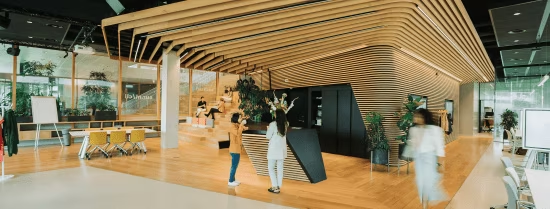The Community for Learning & Innovation (CLI) gives lecturers from Erasmus University Rotterdam (EUR) the opportunity to apply for a fellowship. With this fellowship, they research educational innovation, or carry out an educational project.
On this page you can read more about the CLI Fellowship of Sandra Sülz (ESHPM) about co-creating student-centered learning journeys for academic and professional skills.
This project focused on designing student-centered learning journeys within the Healthcare Management (HCM) master's program, aiming to enhance students' academic and professional skills. Aligned with the university’s mission of shaping students into gamechangers capable of addressing complex societal issues, the initiative adopted a co-creation approach that involved students in curriculum design. This method fostered critical skills such as reflection, self-regulated learning, collaboration, and proactive behavior, encouraging students to take ownership of their educational development.
By following the constructive alignment model, the project enabled students to define their own learning objectives, co-create learning activities, and identify ways to demonstrate their progress. Given the diverse backgrounds of HCM students—ranging from healthcare professionals to graduates from various multidisciplinary fields—the learning journeys were tailored to accommodate different educational needs, professional experiences, and career aspirations. The project also utilized Dollinger & Lodge’s (2020) Evidence-Based Model of Student-Staff Co-creation to evaluate key elements such as student perceptions, motivation, and engagement throughout the co-creation process.
One of the project’s most significant outcomes was the collaboration with Erasmus Centrum voor Zorgbestuur, which provided access to a network of senior healthcare managers from the Master of Health Business Administration (MHBA) program. This connection enabled a rich exchange of insights between HCM students and MHBA participants, blending theoretical perspectives with practical leadership experience. Students had the opportunity to engage with professionals in key healthcare roles, gaining real-world insights and receiving valuable feedback on their research ideas.
This collaboration effectively bridged academic and post-academic education, offering students a unique chance to learn from experienced leaders while providing MHBA participants with fresh theoretical input. This mutually beneficial learning experience exceeded the project’s initial expectations.
Curious about the outcomes? Check out the interview below where I share key lessons learned, and feel free to reach out for more details!
Deliverables
- Researcher
- Related links
- More CLI Fellowship projects

